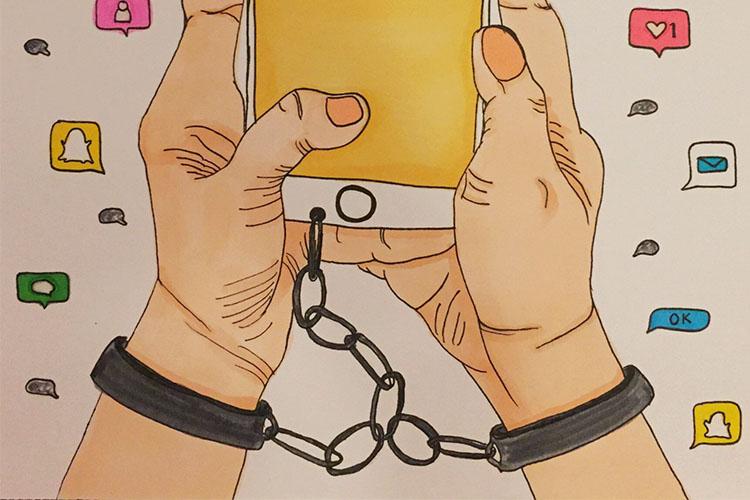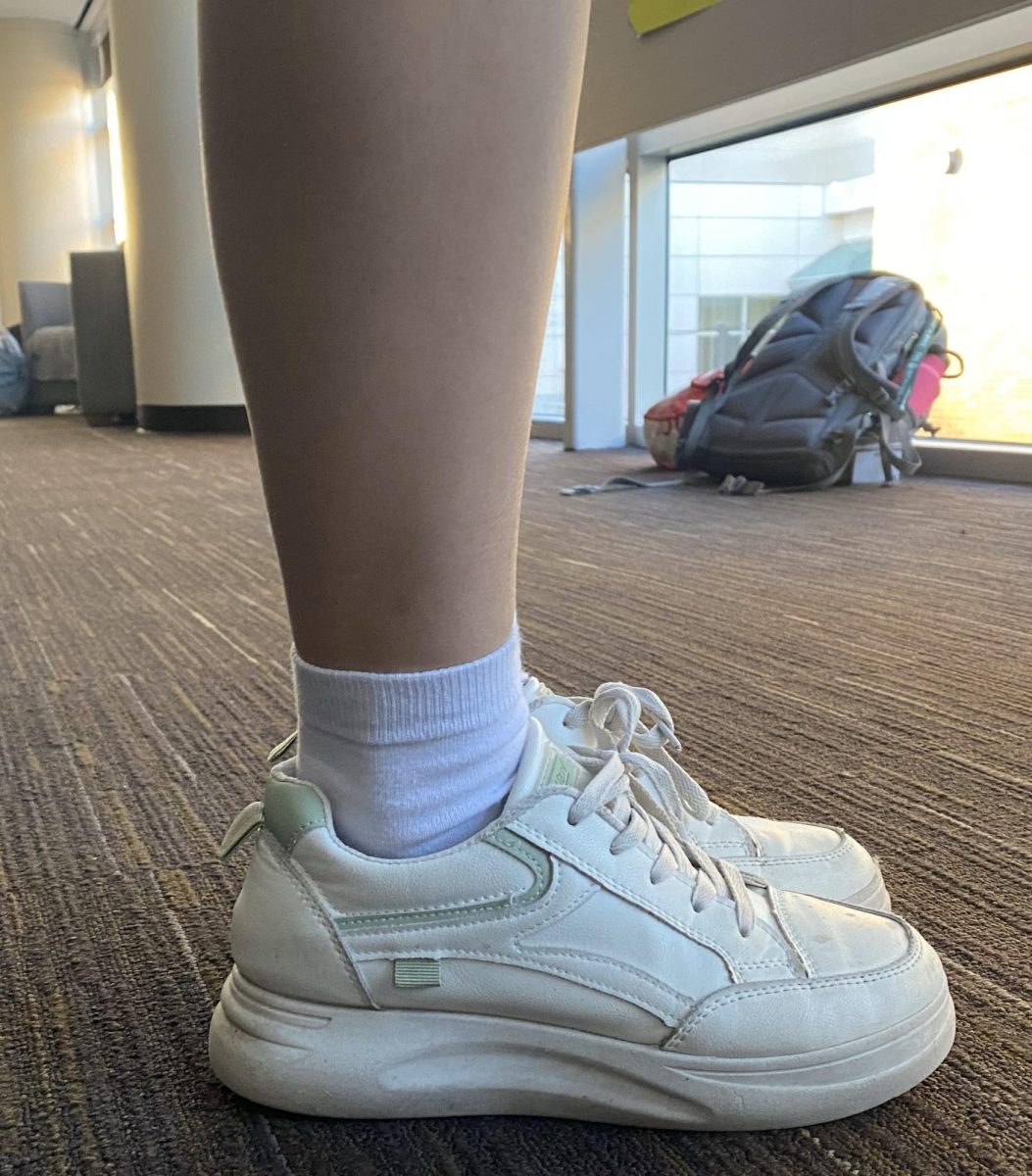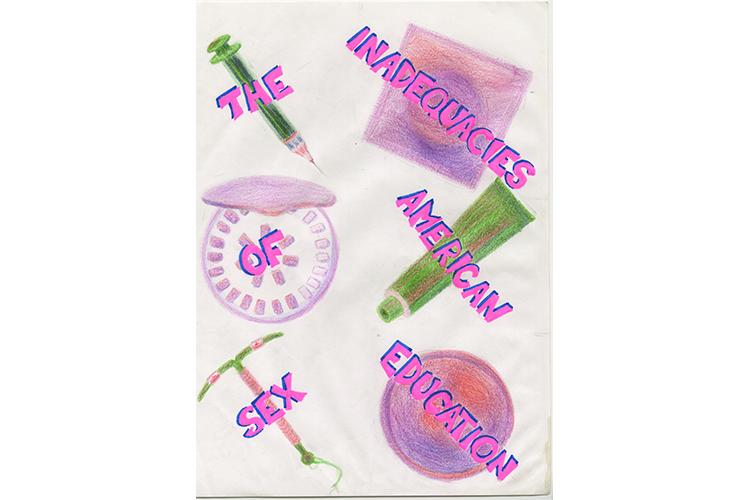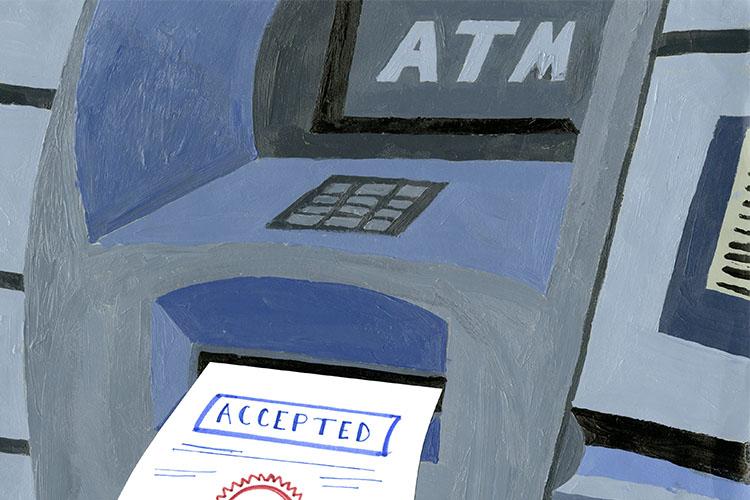//PICTURED ABOVE: Addiction to technology, especially social media, is a serious problem that plagues today’s teens. Apps such as Snapchat and Instagram, widely popular platforms, dominate large quantities of time in teen’s lives, and are integrated into daily routines.
Social media platforms can present unparalleled business and social networking opportunities, but the effects these sites have on young adults and children are more dangerous than they seem.
We’ve all been there: you just posted a photo on Instagram and cannot help but constantly refresh your page checking for likes. Hayley* just posted a photo. Does she have 200 likes within the hour? Are enough people commenting? Should she delete it?
Social media, namely Instagram and Snapchat, have shaped the mindsets of those growing up in the technological age and have thus defined the generation of those born within the last two decades. Technology has seeped into almost every aspect of our lives, becoming harder and harder to escape. We are the iGen. The arrival of the smartphone has radically changed teens’ lives, from the nature of social interactions to mental health. While these platforms have not been around long enough
for experts to study their long-term effects, what studies have shown is that the hours spent scrolling lead to increased isolation, depression, anxiety, addiction and escapism.
Congresswoman Alexandria Ocasio-Cortez called Facebook a “public health risk” after claiming she had cut herself off from all social media platforms. Likewise, in a new bill that has moved to Parliament, the United Kingdom is moving to ban children from liking posts on Facebook and barring companies from employing “nudge techniques” that keep their young users returning to a site, according to the Wall Street Journal.
Social media platforms strategically use “reward loops” such as likes on Instagram or Snapchat streaks that encourage users to keep returning to a platform in order to earn their version of validation. Slowly, their brain views these things as rewards, thus triggering dopamine releases in the brain’s pleasure center, according to a study by the Department of Neurobiology at Harvard. As the brain becomes accustomed to these rushes, users are more likely to want to return to social media platforms and even become dependent on these “rewards.” Especially in developing minds of young users, it is increasingly terrifying how companies use these networks to not only influence but to rewire users’ brains.
While it’s true that a sense of community can be felt on social media, as well as a widespread potential business network, especially for members of iGen, mental health is often negatively impacted by the culture of comparison. Body image issues are created through the representation of society’s ideal body type online and exacerbated by things like celebrities who promote fad diets or weight loss products that appear to give them their seemingly perfect figures. Young minds are particularly vulnerable to the dangers that arise when the media only classifies “skinny” bodies as beautiful.
Influencers and models on Instagram are present in almost every user’s feed. It is harmful for young girls and boys—who might even have an account as young as 10 years old— to implicitly learn that their own bodies or feeds are not worthy of the same kind of attention and praise. A study by the University of Pittsburgh showed that there is a strong correlation between time spent on social media platforms and negative body image. This research concluded that young adults had two point two times more risk of reporting eating disorders if they spent more than three hours a day on social media.
My parents did not allow me to have an Instagram until eighth grade, and I spent the first years of middle school begging for an account, desperate to feel included in the circle that seemed to be the high point of everyone’s social life. Now, after two years of having an account, I am saddened to admit that I wish my dad had never given in to my pleas. My explore page is infected with girls only a few years older than I am posing on yachts with champagne in bikinis; I almost feel as though I am part of a cult, raised to believe I am to imitate what I see in my feed, in hopes of mattering. But by what standards?
The way social media lurks beyond our screens and into the way we see the world and ourselves is perilous. Most members of the iGen are seemingly inseparable from their screens, as iPhones have become like attachments to their hands. The dangers of social media rise slowly but steadily which begs the question, when it’s time to let our children into this digital world, where will we be?
Story by Katherine Grace Estess
Illustration by Juliana Bush

















